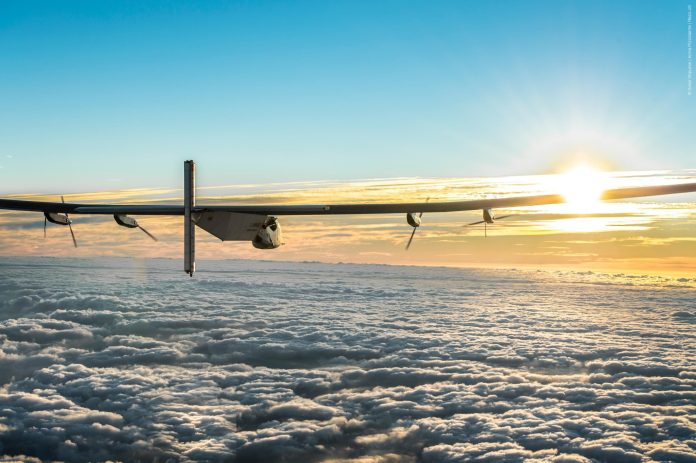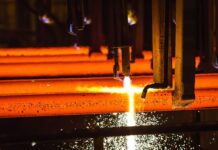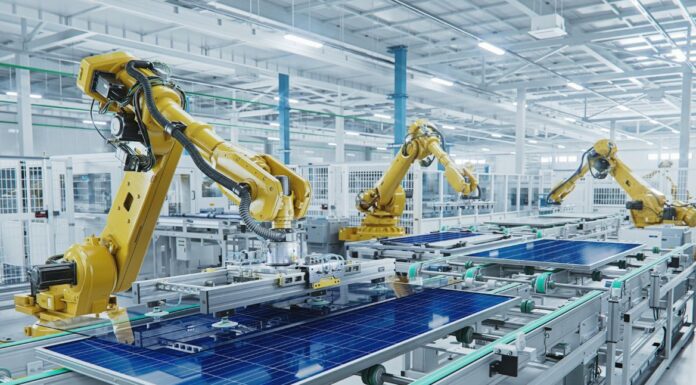
Solar Impulse, a groundbreaking solar aircraft, has completed the first of its kind flight across the Atlantic, demonstrating that the latest generation of sustainable technologies can pave the way for a new era of environmentally friendly transport systems and solutions.

Image provided
The pioneering aircraft completed a 71-hour transatlantic flight from New York to Seville as part of its remarkable round-the-world journey which began last year in Abu Dhabi.
What makes this plane unique is the fact that it relies on the latest generation of solar cells, batteries and lightweight composites to achieve the once seemingly impossible task of flying around the world without using any fossil fuel whatsoever.
“This aircraft is essentially a flying smart grid, using the energy collected from renewable sources and then providing it efficiently to users who may require it at a different period of time from when it was generated,” remarked André Borschberg, one of the aircraft’s two pilots.
Another unique characteristic of Solar Impulse is its wingspan, which is greater than a 747 even though the solar aircraft weighs as much as an ordinary passenger car. In addition, the aircraft uses high-capacity lithium-polymer battery system to permit it to fly through the night as well as in full sunlight.
“The world could be much more efficient if all of these technologies were implemented on a wide scale. This is exactly what our partners at ABB are doing – applying these innovations in a way that the entire world can use them,” said the project’s other pilot, Bertrand Piccard, who is Solar Impulse’s initiator and chairman.
ABB’s CEO Ulrich Spiesshofer noted that Solar Impulse serves as just one strong current example of how advanced technologies are revolutionising the world of transportation.
He said the company provides an expanding range of products and solutions that increase the efficiency of transport systems while reducing their environmental impacts on multiple fronts.
“At ABB, we seek to find new ways to run the world without consuming the earth,” Mr Spiesshofer added.
“Regenerative braking systems in electric trains, trams and other vehicles are also contributing to significant improvements in energy efficiency. ABB’s ENVILINE product portfolio incorporates regenerative braking and other high-efficiency strategies to reduce energy consumption in direct current rail traction systems by as much as 30 percent.”
The development of new fast-charging stations, which can recharge the battery packs in the latest vehicles in just a few minutes, also contributed greatly to the rapid acceptance of electric buses and other EVs.
A new public bus system in Geneva and one currently under construction in Namur, Belgium, make use of fast-chargers from ABB to provide cost-efficient zero-emission transport that will improve air quality and reduce congestion in city centres around the world.
Marine transport has also benefited from recent innovations. ABB’s Azipod propulsion systems, a gearless steerable marine propulsion system where the electric drive motor is in a submerged pod outside the ship hull, allow for dramatic increases in manoeuvrability and efficiency, delivering fuel savings of approximately 700,000 tonnes since its launch 25 years ago.
The company’s OCTOPUS solution uses big data, smart sensors and advanced connectivity to provide guidance to ship operators on the most efficient routes to follow, while also giving warnings of potential hazards.
“We are seeing huge new opportunities in the field of sustainable transport,” commented Mr Spiesshofer.
“Recent technological developments are opening the way to major advances in energy efficiency and productivity. We are only just beginning to realise the full potential of these changes.”




















